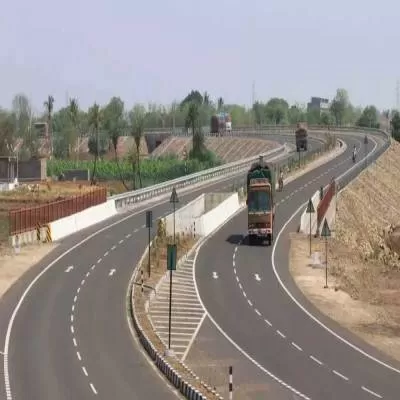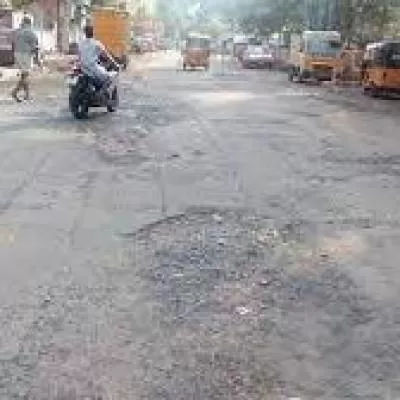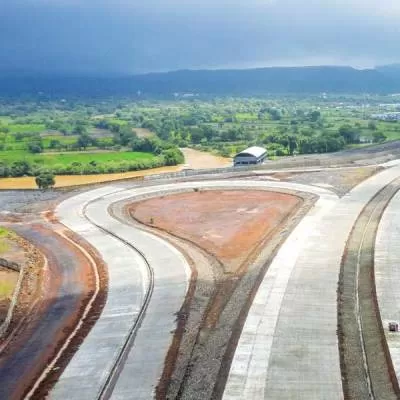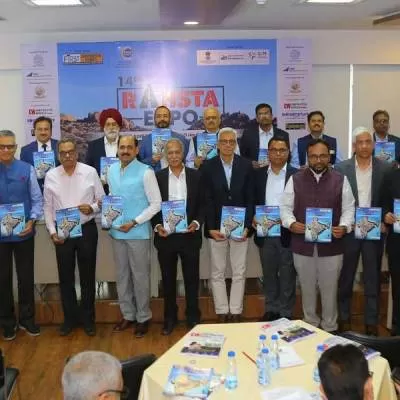- Home
- Infrastructure Transport
- ROADS & HIGHWAYS
- Land Acquisition Bill passes the Lower House Test
Land Acquisition Bill passes the Lower House Test
The new Bill introduced and passed in the Lok Sabha had nine additional amendments or concessions, plus two additional clauses:
1.Limiting the industrial corridor to one km on both sides of highways and railway lines. This is limited to industrial corridors being set up by the government only.
2.Employment for at least one member of farm labour families which are affected due to displacement and land acquisition
3.Removal of exemption from consent clause extended earlier to five sectors has been taken away from social infrastructure projects under PPP model. Social Impact Assessment (SIA) will also be conducted for such projects.
4.Acquisition to be of bare minimum land.
5.Survey to be undertaken of wastelands.
6.Hassle-free grievance redressal to be undertaken at district level and creation of a quasi-judicial authority.
7.Social Impact Assessment has been made a prerogative for the state governments.
8.States can create land banks of vacant land for development projects.
The changes above are in addition to the earlier amendments moved through an ordinance where the government had added five sectors (defence, rural infra, affordable housing, industrial corridors, infra and social infra projects including PPP) to a list that would not require owners’ consent while acquiring land as well as exempted them from submitting a social impact assessment (SIA) and removal of restriction on acquisition of multi-crop lands for these sectors. The last social infra projects including PP have been removed from the exemption list.
The passage of the bill is crucial as it has been a long-standing demand from industry to relax some provisions which made land acquisition difficult, expensive and time-consuming and thus harming industrial growth.
Even though the bill was passed in Lok Sabha, where the government enjoys a comfortable majority, that would not be the case in Rajya Sabha. The earlier changes or removal of consent clause has been termed anti-farmer, though they are definitely industry-friendly, while removal of SIA will save both costs and time. The main point is that the process should be fair to both farmers as well as the industry.
The government has the option to either pass the bill in a joint sitting of the two houses where it will have the requisite numbers to get it passed in case it gets rejected in the Rajya Sabha or it will have to re-promulgate the ordinance again to give itself breathing space. There is also the option of setting up a parliamentary panel and referring the bill to it, though it is likely to delay passage of the bill by further six to eight months.
-Anuj Puri, Chairman & Country Head, JLL India
The Central Government has managed to push through an amended Land Acquisition Bill in Lok Sabha.This Bill is an amended version of the original Bill that was passed by the UPA government. The new Bill introduced and passed in the Lok Sabha had nine additional amendments or concessions, plus two additional clauses: 1.Limiting the industrial corridor to one km on both sides of highways and railway lines. This is limited to industrial corridors being set up by the government only. 2.Employment for at least one member of farm labour families which are affected due to displacement and land acquisition 3.Removal of exemption from consent clause extended earlier to five sectors has been taken away from social infrastructure projects under PPP model. Social Impact Assessment (SIA) will also be conducted for such projects. 4.Acquisition to be of bare minimum land. 5.Survey to be undertaken of wastelands. 6.Hassle-free grievance redressal to be undertaken at district level and creation of a quasi-judicial authority. 7.Social Impact Assessment has been made a prerogative for the state governments. 8.States can create land banks of vacant land for development projects. The changes above are in addition to the earlier amendments moved through an ordinance where the government had added five sectors (defence, rural infra, affordable housing, industrial corridors, infra and social infra projects including PPP) to a list that would not require owners’ consent while acquiring land as well as exempted them from submitting a social impact assessment (SIA) and removal of restriction on acquisition of multi-crop lands for these sectors. The last social infra projects including PP have been removed from the exemption list. The passage of the bill is crucial as it has been a long-standing demand from industry to relax some provisions which made land acquisition difficult, expensive and time-consuming and thus harming industrial growth. Even though the bill was passed in Lok Sabha, where the government enjoys a comfortable majority, that would not be the case in Rajya Sabha. The earlier changes or removal of consent clause has been termed anti-farmer, though they are definitely industry-friendly, while removal of SIA will save both costs and time. The main point is that the process should be fair to both farmers as well as the industry. The government has the option to either pass the bill in a joint sitting of the two houses where it will have the requisite numbers to get it passed in case it gets rejected in the Rajya Sabha or it will have to re-promulgate the ordinance again to give itself breathing space. There is also the option of setting up a parliamentary panel and referring the bill to it, though it is likely to delay passage of the bill by further six to eight months. -Anuj Puri, Chairman & Country Head, JLL India




















